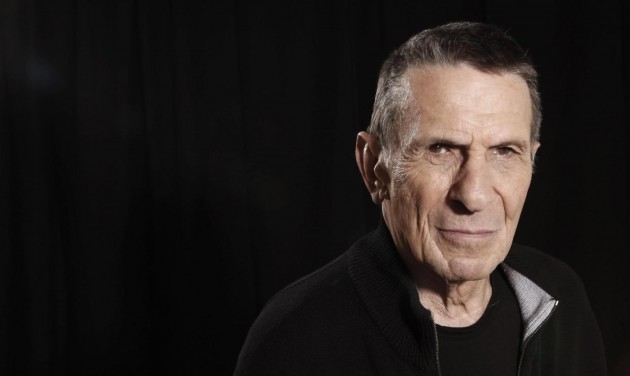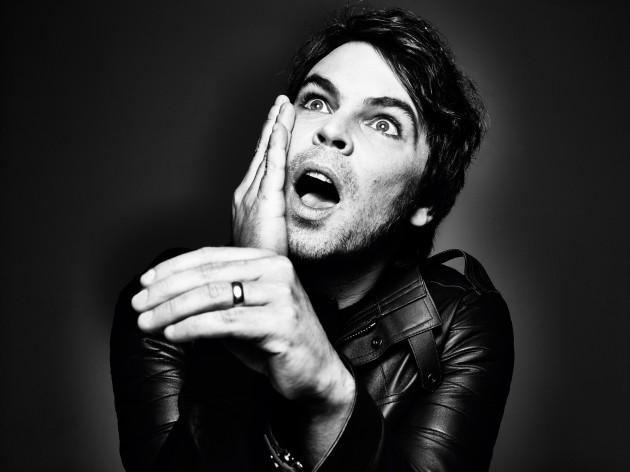Leonard Nimoy’s first autobiography, published in 1975, was titled I am Not Spock, the actor having been pigeonholed to some extent as the Vulcan scientist from Star Trek. His follow up, published 20 years later, was called I am Spock. In those intervening years, the man himself had come to realise what a potent cultural symbol he had become, and seemed to have reconciled himself to it. As we look back in the aftermath of his passing, it’s certainly apparent that being Spock was no bad thing.
The Boston born actor had a long, if unspectacular career in television and film before his era-defining performance as Mr Spock, appearing in a myriad of b-movies, Westerns, and television bit parts. Intrugingly, when he was cast as the starship Enterprise’s science officer, Nimoy was given a remarkable amount of input into the character development. The original pilot portrays him as a cold, mechanical being, harsh and unsympathetic in contrast to the bunch of intellectual adventurers that made up the original, pre-Captain Kirk crew. The pilot was unsuccessful, with executives finding Nimoy’s performance somewhat Satanic. Enter Shatner, exit highbrow pseudo-science (sort of), and Star Trek became one of the enduring icons of the 60s, a show that epitomised hope, ambition, and adventure. And Nimoy’s reinvention of Spock was right at the core.
Aliens had long been a part of storytelling, but Mr Spock was something different. His adherence to logic, his remoteness, his detachment from humanity all marked him out as something unseen. He was no bug-eyed monster out to destroy us, but nor was he an easily accessible character either. But Nimoy’s investment in the role brought out a wealth of subtleties, and soon Nimoy was receiving joint top-billing with co-star William Shatner. Drawing from a variety of historical sources and philosophies, Nimoy fleshed out the character, making him believable, and ultimately – loveable. In essence, Star Trek is story of deep friendship and personal discovery, and nowhere is this better exemplified than in the relationship between Kirk and Spock. They’re closer than friends, closer than brothers. In any other world, they’re like lovers, such is the intensity of their bond.
The show was cancelled in 1969, but went on to have a remarkable second life on the cinema screen at the tail-end of the ‘70s, and throughout the ‘80s and ‘90s. Nimoy himself was initially reluctant to return to the role, having found himself typecast as cold, unfeeling characters, but was enticed back for one more hurrah. Then another. And then another. Along the way, he killed Spock, brought him back to life, and gave him a sense of humour.
Outside of Star Trek, Nimoy had a solid career as an actor, on television with Mission: Impossible, on the cinema screen in movies likeInvasion of the Bodysnatchers, and on the stage in a series of acclaimed roles. His direction of Star Trek III: The Search for Spock (1984), a prerequisite of his staying on with the series, led to directing the follow up, The Voyage Home (1986) which became one of the most successful films in the long-running series. Using the comedic skills gained from that, he moved on to direct Three Men and a Baby (1987), proving that it wasn’t a one off.
And then there’s the music. Not what you would describe as an ‘accomplished’ singer, his forays into the world of pop music in the late-60s are fondly regarded as some of the more curious cultural artefacts from the era. Whether he was trying his hand at folk-rock standards, or bringing Bilbo Baggins kicking and screaming into the psychedelic age, Nimoy certainly seemed to be enjoying himself, regardless of whether anyone else has.
But it all comes back to Spock. In the recent re-boot of the Star Trek saga, a lot has been sacrificed from the original concept, for better or worse. The movies are hugely successful, but much of that hopefulness has gone. Star Trek is a crucial part of the spirit of the ‘60s, and the modern version is perhaps much more reflective of the times we live in now. But right at the heart of the new films, stands Spock, offering advice to his younger self. Leonard Nimoy once seemed concerned with being perpetually seen as this alien, unemotional character, but as time has shown, Spock brought out the heart in all of us who ever watched the show. In Star Trek II: The Wrath of Khan, Kirk remarks at Spock’s funeral, “Of all the souls I have encountered in my travels, his was the most human.” Given the incredible impact Leonard Nimoy’s work has had upon audiences all over the world, and the strength and inspiration that people have drawn from his portrayal as Mr Spock, one could not hope for a better epitaph. Steven Rainey





